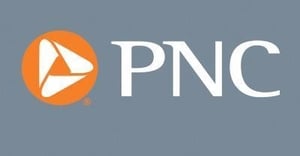
- Topline PPI gained 0.3% on a seasonally adjusted basis in January 2024
- Core PPI, less Food & Energy, bounced by +0.5% to kick off 2024
- Services PPI remains the sole source of price pressure in the U.S. economy, up by 0.6% for January 2024
- Producers’ Energy prices feel for a fourth consecutive month, down 1.7% in January 2024
Producer Price Index (PPI) inflation for January 2024 posted its first significant increase since September 2023, jumping by 0.3% for the month on a seasonally adjusted basis. Core PPI inflation, which excludes volatile costs for food and energy producers, was also up sharply for the month at +0.5%. The January 2024 PPI inflation result adds to the angst resulting from January’s upside shock in CPI inflation that pricing pressures pose a comeback threat. One month’s data does not make a trend, but ongoing wage pressures and seemingly insatiable consumer demand on the services side of the economy at least prevent the January 2024 PPI bounce from being dismissed as an outlier out of hand.
Prices in Final Demand for Goods producers saw a decline of -0.2% for the opening month of 2024. A declining trend in goods producers’ costs has been in place since October 2023, and Goods PPI has now declined by 1.8% year-over-year. The services side of the U.S. economy, however, is telling quite the opposite story. Services PPI inflation has seen only intermittent interruption as the U.S. economy has battled inflationary pressures over the past two years, rising in all but 3 months since January 2022. Consumer spending trends are proving difficult to alter, despite the Federal Reserve’s efforts to restrict growth through higher borrowing costs. That spending is consistently earmarked for service providers’ offerings, both allowing businesses to pass their still-rising costs on to consumers and to some degree encouraging price hikes in order to take advantage of consumer demand.
Also relevant to trends on Goods PPI inflation front, both Intermediate and Final Demand for Transportation & Warehousing declined in January 2024, down 0.1% and 0.4%, respectively. These results reinforce the notion that what upstream price pressure exists among U.S. businesses is isolated to experience-driven consumer spending preferences.
Energy PPI declined by 1.7% in January 2024. This is the Energy PPI component index’s fourth consecutive monthly decline despite ongoing geopolitical risks in the Middle East region. Producers’ energy costs are down by nearly 10% versus one year ago amidst the current downward trend in Energy PPI. Even a reactionary spike in oil prices in response to Middle East tensions does not seem to pose the risk of undermining progress toward stabilizing inflation in the U.S. economy, given that there is momentum toward lower energy costs for producers that would likely temper any such bounce. Gasoline prices will always be a high-profile threat to household budgets, but the pass-through cost of energy from producers to consumers does not appear capable of compromising household budgets given recent PPI trends.
Markets’ anticipation of an early and aggressive monetary policy reversal from the Fed took a beating from inflation readings this week, both on the CPI and PPI fronts. Flare-ups like this highlight that inflation may be on the right track to stability, but there remain risks that could enable one month’s data to snowball into a more destructive force. Consumer demand remains firmly in the control of inflation’s path, and therefore the Fed’s actions in 2024. PNC expects the Fed to cut rates this year by a full percentage point in four 25 basis point increments, beginning in May. If January’s inflation results prove more than isolated incidents, that already tame – by market standards – forecast could itself prove to be too dovish.














